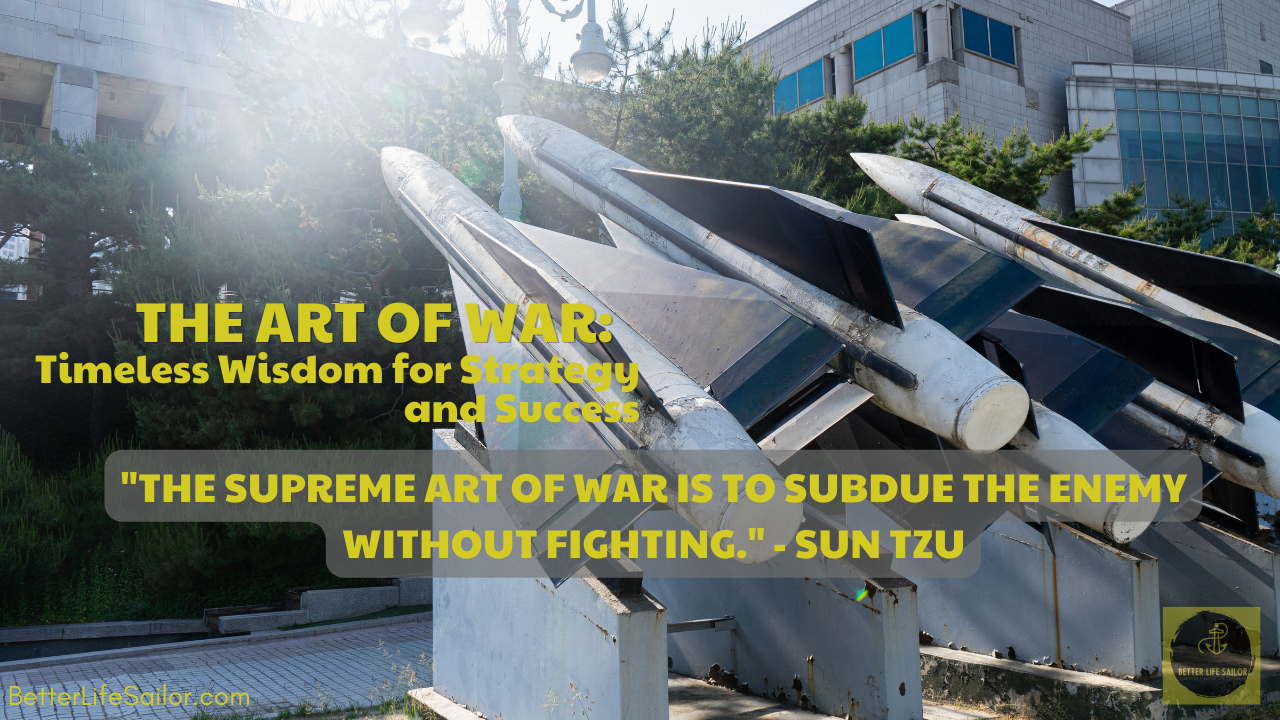Sun Tzu’s “The Art of War” is a classic work on military strategy that transcends its origins to provide invaluable insights into various aspects of life, including business, leadership, and personal development. In this blog post, we’ll delve into the timeless wisdom contained within this ancient text and explore how its principles can be applied to contemporary challenges.
Understanding the Author and Context: “The Art of War” is attributed to Sun Tzu, a Chinese military strategist and philosopher who lived during the Eastern Zhou period (c. 6th century BCE). His treatise, composed of 13 chapters, lays out strategies and tactics for warfare, but its principles extend far beyond the battlefield.
1. The Importance of Preparation:
Sun Tzu emphasizes the necessity of thorough preparation before engaging in any endeavor. Whether in war or business, understanding your strengths, weaknesses, and the terrain of your “battlefield” is crucial. In business, this equates to conducting market research, analyzing competitors, and assessing your own capabilities.


2. Strategy and Planning:
“The Art of War” underscores the importance of strategic planning. Sun Tzu advises that victory is determined before the battle begins. Businesses can learn from this by setting clear goals, developing sound strategies, and anticipating challenges.
3. Adaptability and Flexibility:
Sun Tzu emphasizes adaptability, encouraging leaders to respond to changing circumstances with agility. In business, this means being open to adjusting strategies when necessary and embracing change as an opportunity for growth.


4. The Power of Deception:
Deception is a recurring theme in Sun Tzu’s work. He suggests that by appearing weak when strong or strong when weak, you can gain a significant advantage. In business negotiations or marketing, strategic messaging and branding can utilize this principle effectively.
5. Leadership and Teamwork:
Effective leadership is central to Sun Tzu’s teachings. He highlights the importance of inspiring loyalty and fostering a sense of unity among team members. Leaders in the business world can learn to motivate and lead their teams to success by understanding these principles.


6. Winning Without Fighting:
Sun Tzu advises that the best victories are achieved without direct conflict. In business, this can translate to winning over customers or competitors through superior products, services, or value propositions, rather than engaging in price wars or aggressive tactics.
7. Knowing Your Competition:
Understanding your competition’s strengths and weaknesses is a cornerstone of Sun Tzu’s strategy. Businesses can gain a competitive edge by conducting thorough competitor analyses and positioning themselves strategically in the market.

How to practice in daily life?
- Prioritize strategic planning, adaptability, and understanding of your “battlefield” (context) in daily decision-making for more effective and efficient outcomes.
- Foster unity, inspire loyalty, and seek innovative solutions to achieve objectives, aiming to influence situations without unnecessary conflict.
- Embrace patience and long-term thinking to outmaneuver challenges, knowing that successful outcomes often require time and persistence.
- Continuously assess your competition, leverage your strengths, and find opportunities to gain an advantage while minimizing direct confrontation.

“The Art of War” offers timeless wisdom that extends far beyond the realm of warfare. Its principles of preparation, strategic planning, adaptability, and leadership are invaluable in today’s competitive business landscape. By studying Sun Tzu’s teachings and applying them thoughtfully, individuals and organizations can navigate challenges with skill and finesse, ultimately achieving success and prosperity. This ancient text remains a wellspring of wisdom for those seeking to master the art of strategy in any arena of life.



